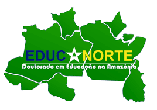Banca de QUALIFICAÇÃO: NARA CLAUDIA ALVOREDO DA CRUZ
Uma banca de QUALIFICAÇÃO de DOUTORADO foi cadastrada pelo programa.STUDENT : NARA CLAUDIA ALVOREDO DA CRUZ
DATE: 30/05/2022
TIME: 14:00
LOCAL: Meio Remoto Plataforma Google Meet
TITLE:
READING PROFICIENCY IN BASIC EDUCATION IN BRAZIL AND PORTUGAL: A COMPARATIVE ANALYSIS BASED ON PISA RESULTSKEY WORDS:
Education system; Basic education; Comparative Education.
PAGES: 148
BIG AREA: Ciências Humanas
AREA: Educação
SUBÁREA: Planejamento e Avaliação Educacional
SPECIALTY: Avaliação de Sistemas, Instituições, Planos e Programas Educacionais
SUMMARY:
This thesis is a comparative analysis on the visibility of the performance of students from Brazil and Portugal, in reading proficiency in PISA assessments. Both countries use the results as their main instruments for measuring educational quality, constituting one of the structuring tools of post-bureaucratic public policies. It is a fact that with each edition more countries have added to this evaluation strategy as a quality control for planning reforms of their respective education systems. The time frame is between the years 2009 to 2018, with comparative priority to the 2009 and 2018 cycles, which had reading as their main domain. The research aimed to analyze the performance of students in reading proficiency in Brazil and Portugal. To achieve the proposal, we preferentially use the data available: in Brazil, at INEP, at QEdu Redes (Brasil), Federal Constitution of 1988, LDB/96, PNE/2014, in Portugal, at IAVE, Institute of the Ministry of Education and Science, OECD reports (2009 to 2018). It is an exploratory research with bibliographic methodology and combines quantitative and qualitative research, with the purpose of presenting comparable information and contextual evidence. Theoretically, to reflect on reading and its different conceptions, we rely on Koch (2009), Elias (2009), Marcuschi (2008), Pelandré (2005), Kleiman (2000; 2003), Rojo (2001; 2002), Soares (2008; 2009), Carvalho (2011), Ferreiro (2010), Solé (1998), Bakhtin (2003), Geraldi (1997; 2006), Martins (2006), Costa-Hübes (2015) and others. The development of the study was by the comparative method and the choice is due to the fact that comparative education has an evaluative and prospective character, which makes it possible to identify the effectiveness in comparison of objects under study and to make planning propositions for the development in the area of education, (FERREIRA, 2008). The PISA results reveal: the conditions of education in the world; the dispute for the best positions in the ranking and implementation of inadequate educational policies (67% of participating countries are below the OECD/2018 average). As a result of the comparative analysis, it was possible to verify the standardization for the assessment in reading through a scale of proficiency levels (2018 - 1a, 1b, 1c, 2, 3, 4, 5, 6 - with 1c being the lowest and 6 is the highest). In Brazil, 50% of students do not have a basic level in reading, considered by the OECD as the minimum to exercise their full citizenship (they are between levels 1 and 2), in Portugal, students reach at least 80% at level 2 of proficiency in reading (are between levels 2 and 3). But a discrepancy was also found: Brazil's average in Reading in Pisa 2018 was 413 points, 74 points below the average for students from OECD countries (487) and the average for Portugal was 492 points, 5 points above the average of students from OECD countries and higher than Brazil with 79 points.
BANKING MEMBERS:
Presidente - 1524433 - MARIA LILIA IMBIRIBA SOUSA COLARES
Interna - 1965707 - SINARA ALMEIDA DA COSTA
Interno - 1153153 - ANSELMO ALENCAR COLARES
Externo ao Programa - 1292601 - ZAIR HENRIQUE SANTOS
Externo ao Programa - 324704 - EDILAN DE SANT ANA QUARESMA
Externa à Instituição - MARIA INÊS MARTINS GOMES DE VASCONCELOS




